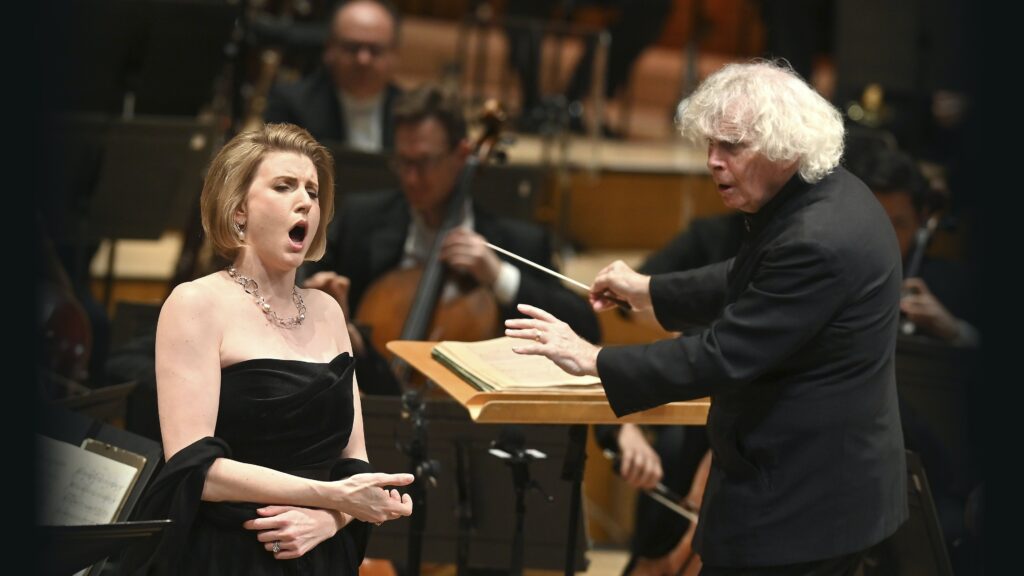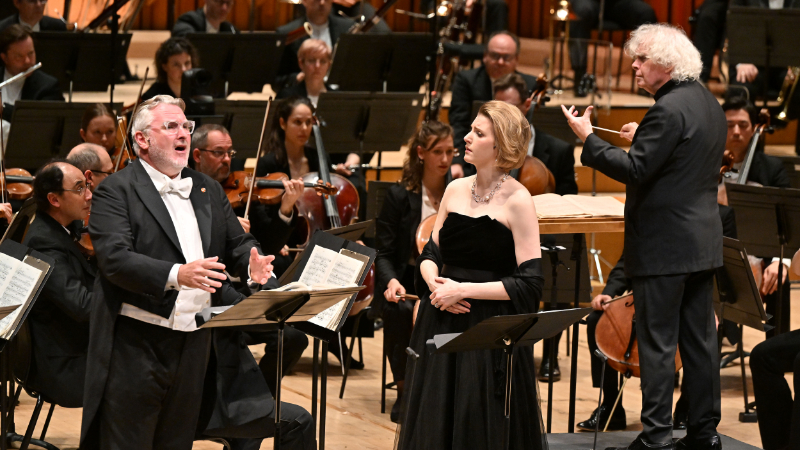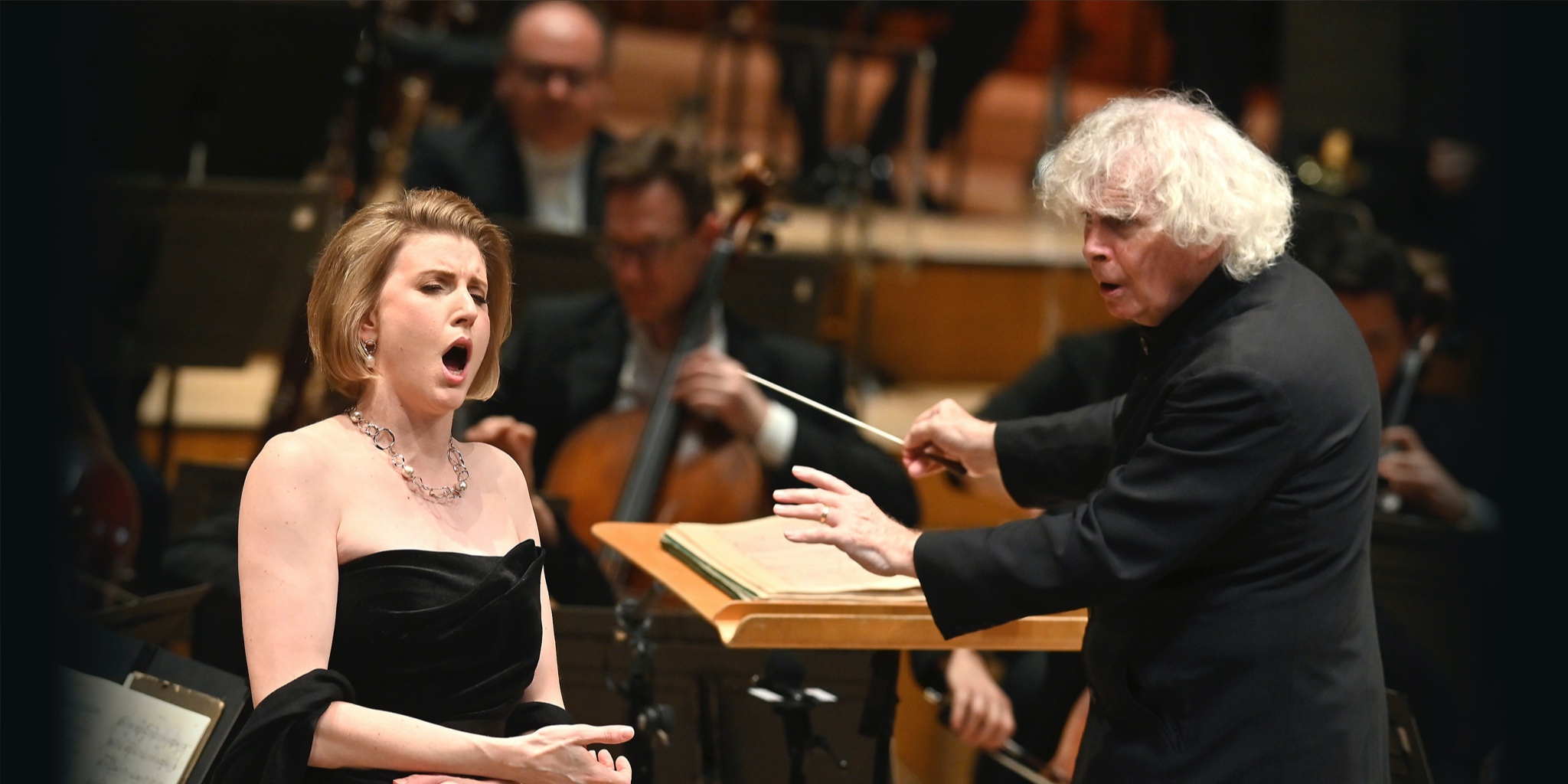Janáček: Káťa Kabanová, JW 1/8 (Opera in 3 Acts)
-
Product on saleJanácek: Katya Kabanova – Acts I, II & III [Double Album]Original price was: €35,98 – €68,98.€23,38 – €44,84Current price is: €23,38 – €44,84.
Káťa Kabanová: Amanda Majeski (soprano)
Boris: Simon O’Neill (tenor)
Kabanicha: Katarina Dalayman (mezzo-soprano)
Tichon: Andrew Staples (tenor)
Kudrjáŝ: Ladislav Elgr (tenor)
Varvara: Magdalena Kožená (mezzo-soprano)
Dikoj: Pavlo Hunka (bass-baritone)
Glasha & Feklusha: Claire Barnett-Jones (mezzo-soprano)
Kuligin: Lukáš Zeman (baritone)
London Symphony Orchestra & Chorus
Sir Simon Rattle
Recorded live at the Barbican, London on 11 January 2023
SACD and stream – downloads from NativeDSD.com
Performance: 5
This, the second part of Simon Rattle’s Janacek opera series, follows on from his superb Cunning Little Vixen. Mackerras’ classic Decca account was used for comparison.
In terms of the conducting, Rattle, who is only half-a-minute slower (allowing for him omitting the very brief Act 2 Interlude), uses more tempo variation without impeding the dramatic flow and makes Janacek’s extraordinary woodwind writing sound more edgy. Whereas Mackerras uses harder timpani sticks and the Vienna brass, including the glorious trombones in the Introduction to Act 1s ‘fate’ motif, are marvellous. Both make the long-breathed themes that grow out of what Desmond Shaw-Taylor called ‘pregnant melodic germs’ soar with Puccini like opulence and both approaches sound right.
You might think, given Mackerras used an all-Czech cast with the exception of the great Swedish soprano Elisabeth Söderström, that he would win out in terms of authenticity, but Rattle’s singers respond with equal conviction and make sure every word can be heard.
As Káťa’s vicious mother-in-law Kabachina, Katarina Dalayman is suitably malevolent. The love interest Boris’ equally nasty uncle Dikoj is finely characterised by Pavlo Hunka, as is Ladislav Elgr as his assistant Kudrjáŝ and all of the smaller roles are well-taken.


Simon O’Neill uses plenty of dynamic variation and is suitably impassioned as Boris, if rather more Wagnerian than the fresh-voiced 25 year old Petr Dvorský. One can say much the same of Amanda Majeski, who uses her powerful voice to delineate every aspect of Káťa’s character, although Söderström’s top is sweeter and her suicide is unforgettably poignant.
Sound
Balance: 5
Inner balance: 5
Detail and clarity: 5
Dynamic range: 5
Sound-wise I downloaded the DSD512, which, with the warts and all acoustic, is the nearest modern digital sound can get you to being there. So in the orchestral introduction and when the singers enter there is keen sense of perspective, presence and projection, analogue-like instrumental and vocal timbres. As you usually get with DSD512 there is far more space in and around the performers, which aids clarity and definition, the hall’s acoustic signature and off-stage effects are more tangible and the dynamic range is excellent.
The 24/192 stream/download is also pretty impressive, even if there is less space and the singers in particular lack the vibrancy of DSD512.
For those still using silver discs. The 16/44.1 layer is, as these things go, good, but sounds what it is, compressed. The SACD/DSD64 is far better, but you only have to hear the brass in the Act 1 Introduction to realise that they don’t have quite the impact of DSD512.
The booklet contains two essays and a libretto with English translation, but the Decca, with essays by Mackerras and John Tyrrell, is in a class of its own.

![Janácek: Katya Kabanova - Acts I, II & III [Double Album]](https://media.cdnb.nativedsd.com/storage/nativedsd.com/wp-content/uploads/2024/02/21124939/LSO0889-scaled.jpg)
